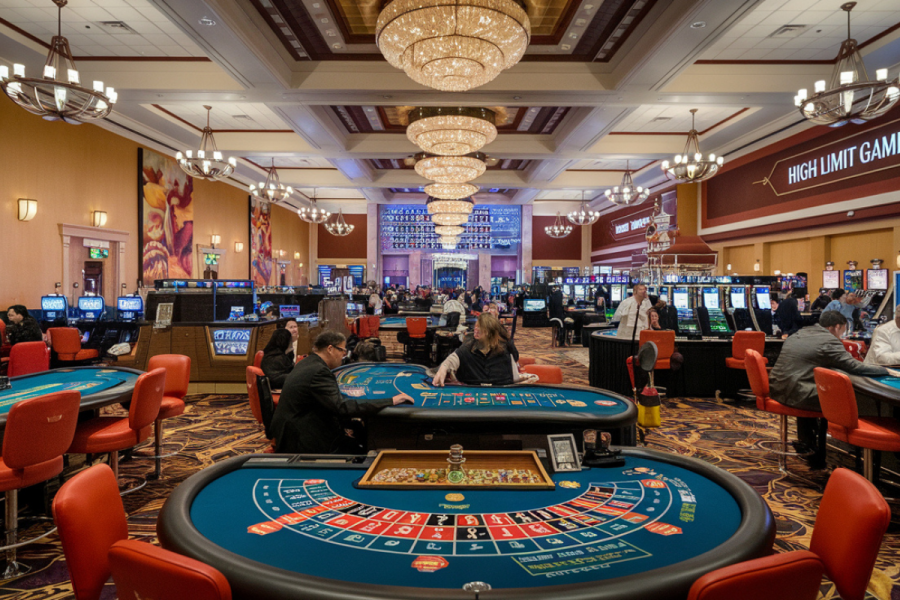What began as an internet curiosity – a place to playfully predict election outcomes or tech mergers – has exploded into something far more significant. Prediction markets are no longer a niche hobby; they’ve become a disruptive force, challenging established gambling giants and drawing the attention of regulators nationwide.
The transformation has been breathtakingly swift. In just a few years, these platforms have evolved from obscure forecasting tools into sophisticated financial arenas. The National Hockey League recently fueled the fire by partnering with leading prediction market platforms, a move widely interpreted as a powerful endorsement.
This partnership sparked a rapid expansion. One platform began offering markets beyond politics and economics, venturing into the realm of sports with bets on touchdowns and final scores. The response from traditional gambling companies was immediate: a major downgrade of key players, signaling a clear threat to their dominance.

Investors are pouring capital into these newcomers, valuing companies at staggering amounts – figures that would have seemed impossible just five years ago. Yet, this rapid growth is accompanied by growing scrutiny. State gambling authorities are grappling with a fundamental question: do prediction markets constitute gambling, and should they be regulated as such?
The mechanics of these markets are unique. Each question – “Will candidate X win?” – becomes a tradable share. A 40% chance translates to a $0.40 share price. Buy low, predict correctly, and earn a dollar. This simple concept, when scaled, creates massive markets, with over $274 million already wagered on future political outcomes.
Unlike traditional sportsbooks, prediction market platforms generate revenue through different means. Some charge small transaction fees, while others profit from the difference between buying and selling prices. This distinction is central to the argument that these platforms aren’t simply casinos in disguise.
One platform operates under the watchful eye of federal regulators, while another emerged from the world of cryptocurrency and initially operated offshore. However, that divide is shrinking. The latter is actively pursuing a return to the US market by acquiring a firm with existing regulatory licenses.
A key difference lies in user verification. One platform requires full identity checks, adhering to strict regulations. The other, rooted in the decentralized crypto world, allows users to participate anonymously with just a digital wallet. This anonymity raises concerns about consumer protection and potential risks.
These contrasting approaches contribute to the regulatory uncertainty. The situation is further complicated as platforms expand internationally, yet still restrict access from numerous countries. The legal landscape remains hazy, and the stakes are incredibly high.
The core of the debate revolves around whether prediction markets should be classified as gambling. States are questioning whether these platforms are simply repackaging gambling under a new guise. Legal battles are unfolding, with one platform fighting for the right to offer sports markets nationwide.
Tribal entities have entered the fray, arguing that prediction markets infringe upon their exclusive gambling rights and threaten their sovereignty. Multiple states have urged federal regulators to intervene, citing violations of state gaming laws. The outcome could ultimately reach the Supreme Court, reshaping the future of gambling in the US.
A central question is how these platforms make their money. Experts highlight a key distinction: prediction markets function more like futures contracts, allowing participants to express views or hedge against real-world outcomes, rather than simply betting against a house. However, strict regulations, leverage limits, and safeguards against interference are deemed essential for future growth.
The debate extends to the very definition of these markets. Some argue they are research tools, while others see them as a new form of gambling. One platform has even faced accusations of misleading advertising, prompting legal action. Ohio has already issued a warning, suggesting that involvement with prediction markets could jeopardize sports wagering licenses.
The line between prediction and gambling is becoming increasingly blurred. Critics point to the ability of eighteen-year-olds to trade sports contracts, despite higher age limits in most gambling jurisdictions. They also highlight the lack of responsible gambling protocols and consumer protections.
Regulators are evaluating how to navigate this complex landscape. While no state has explicitly banned prediction markets, the possibility looms. The industry exists in a legal gray area, operating under federal regulations but largely outside state oversight. The future hinges on which framework ultimately governs these rapidly evolving markets.
The result is an industry poised somewhere between Wall Street and Las Vegas, where political futures are traded alongside bets on hockey scores. Whether prediction markets evolve into sophisticated information tools or simply a new form of gambling, one thing is certain: the distinction between the two is fading, and the US must soon decide how to regulate this emerging force.






